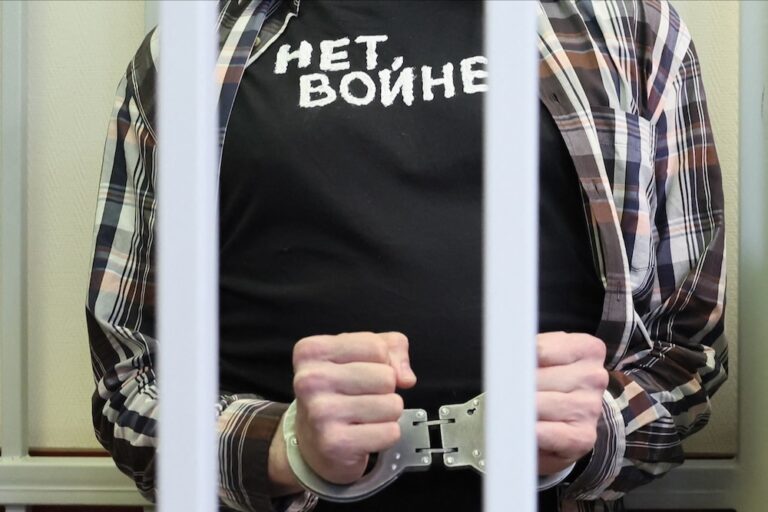(RSF/IFEX) – In a letter to Minister of Defence Igor Sergeyev, RSF expressed its outrage over the assassination of Adam Tepsurgayev, a freelance cameraman who has worked for a number of media, including the Reuters agency. “We ask that the Russian authorities launch a serious investigation into the murder,” said Robert Ménard, the organisation’s secretary-general. […]
(RSF/IFEX) – In a letter to Minister of Defence Igor Sergeyev, RSF expressed its outrage over the assassination of Adam Tepsurgayev, a freelance cameraman who has worked for a number of media, including the Reuters agency. “We ask that the Russian authorities launch a serious investigation into the murder,” said Robert Ménard, the organisation’s secretary-general. “Once again, a journalist’s work on the Chechen conflict has led to his death, and the Geneva coventions are once again held up to ridicule in Chechnya,” added Ménard.
According to information collected by RSF, on 21 November 2000, Tepsurgayev, 24, was shot and killed in a house in the town of Alkhan-Kala, which is ten kilometres south of Grozny. According to statements by Ali Tepsurgayev, his brother, who was injured in the attack, armed men speaking a Chechen dialect burst into the house and started shooting. The Kremlin’s spokesperson on the Chechen conflict, Sergei Yastrjembski, stated that “this assassination proves yet again that it is essential that measures be taken to guarantee the security of journalists in Chechnya.” He added that Tepsurgayev did not have accreditation from the Russian authorities.
RSF recalls that it is almost impossible for journalists covering the Chechen conflict to receive accreditation, and that attacks and threats against journalists are occuring with increasing frequency in the territory.
RSF recalls that assassinations of journalists linked to the Chechen conflict have multiplied over the last six months. On 16 October, star Italian reporter Antonio Russo, who was covering the Chechen conflict from Georgia, was found dead at the side of a road north-east of Tbilissi. The journalist worked for the Radical Party’s radio station. The journalist’s apartment was searched and ransacked and video images of the Chechen conflict had disappeared (see IFEX alerts of 24 and 20 October 2000). On 21 September, Iskandar Khatloni, a Radio Liberty journalist from Moscow, was found dead with a fractured skull. A link between the murder and the journalist’s activities has not been definitively established. Khatloni had been investigating human rights abuses in Chechnya at the time of his murder (see alert of 22 September 2000). Finally, on 12 May, journalist Alexander Yefremov was killed in the south-east of Chechnya following the explosion of a remote-controlled mine (see alert of 16 May 2000).


